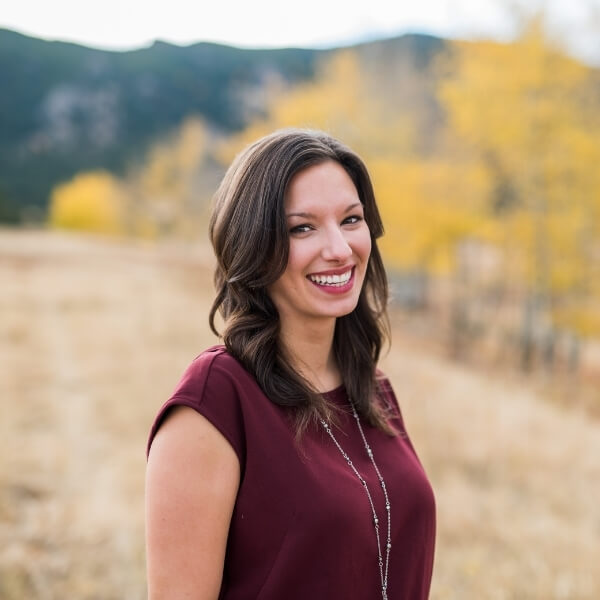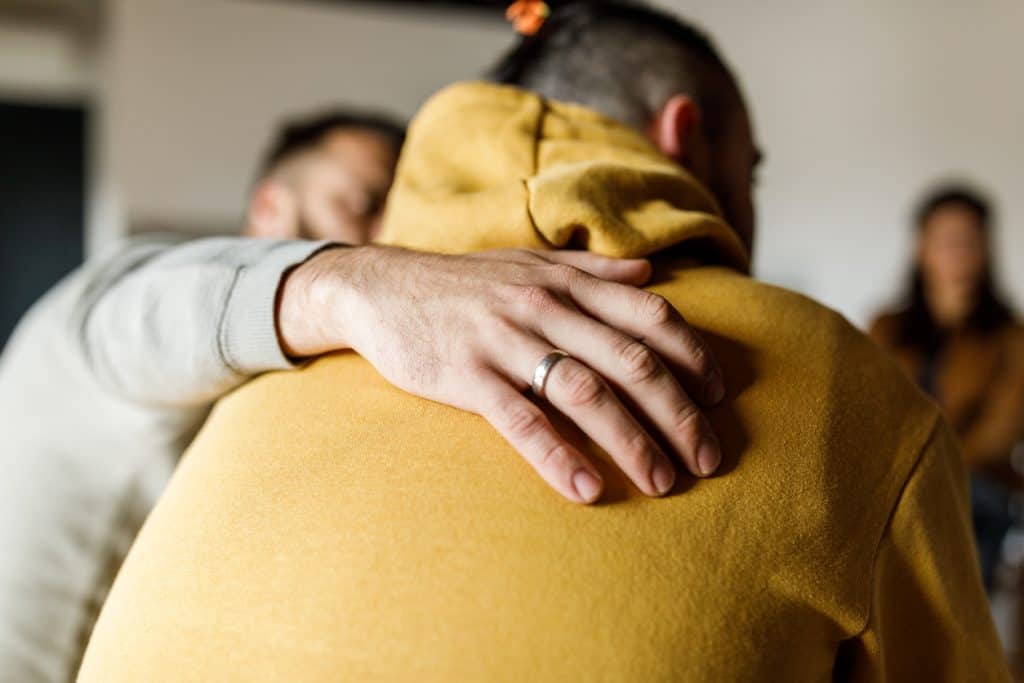I was angry.
Emotions swirled in my head—confusion, sadness, shame, betrayal—as my tears hit the pew. I had just come from my first confession including my struggle with masturbation. Years of an addiction I didn’t realize I had because of the lies I believed. Lies I told myself.
That was ten years ago.
The Lie
It started the way it happens for many people—mere curiosity. At twelve years old, I innocently stumbled upon a movie that demonstrated a behavior I had never encountered before. I knew what sex was, but this was different. I was curious and it seemed harmless enough. At least that’s what I thought.
When engaging in this behavior, I noticed something—my stress level went down, and I was temporarily relieved of any hardship I was experiencing at the time. Because of this, it became my constant companion in high school and into college. During these years, I came across more movies and TV programs that demonstrated this as healthy and good behavior.
When I came back to my faith, this topic was never brought up. After attending chastity talks, I saw this as a great alternative to sex without the risk of pregnancy, STD’s, or chemically attaching myself to someone who wasn’t my future spouse.
In college, these beliefs were only affirmed. A few girlfriends and I talked about this behavior as empowerment and would joke about our experience. My professors openly recommended watching pornography with significant others. Walking past dorms with porn on in the background was a common occurrence. It all seemed completely normal.
However, as I got more involved in my faith, I knew something wasn’t right. I finally started developing a prayer life and knew my behavior wasn’t approved by the Catholic Church. However, since this was “completely normal” behavior, I decided that the Church must be wrong.
To put it to the test, I decided to give up masturbation for Lent. Forty days—simple. If I could do it easily, I would prove to myself I wasn’t addicted as the Church had said.
Unfortunately, this “test” wasn’t as simple as I thought. While it started off easy to do, by the third week, I couldn’t stop thinking about it. It changed my thoughts, and I started needing to make more plans out of the house to be distracted from my own thoughts and temptations. It was then when I realized I wasn’t in control of my behavior. I no longer could choose against it with my own will. The Church was right—this is an addiction, and I needed to finally bring this to Jesus in the form of confession.
I wish I could say that was it. That I walked away from that confession never to struggle with pornography or masturbation again, but unfortunately, that’s only the beginning of my story. From there I had to begin the real journey of seeking freedom on my own. After all, at the time there were very few resources available for women (if any at all).
Finding Freedom
Over the years, I was able to experience full freedom. It didn’t come all at once and required years of hard work, relapses, forgiveness, and more hard work. But it happened. And by the grace of God, I have been able to take the steps that helped me and share them with thousands of women all over the world to aid in their journey towards freedom.
After speaking to these women over the years, the same thing kept happening. While women would experience initial grace and freedom after my talk, they would often get home and eventually fall back into the same pattern. This was the inspiration for writing my book, Uncompromising Purity, It’s not Just a Guy Problem. I wanted a resource for women from a woman’s perspective to be able to speak through the noise and lies we receive from the world. While the book goes into greater detail, below are the six key steps for women desiring to experience freedom from an addiction to pornography or masturbation.
Keep in mind, no matter how many talks or podcasts you listen to, books you read, or blogs you save, the only way you will receive freedom is by doing the work. The heart-wrenching work. It’s going to require you to be vulnerable, to give up things that have given you comfort for years, and to change even the simplest ways of living your life. You need to be willing to do whatever it takes to receive healing.
So, let us begin!
1. Invite Jesus in
Regardless of your religious background, every addiction recovery group starts with acknowledging a higher power and surrendering your addiction. If you have spent time researching the chemical nature of addictions, this makes complete sense. An addiction is something that has control over your mind, intellect, body, and will. You must surrender it to something greater than yourself to receive the strength necessary to rid yourself of it. However, that’s not the only reason to start here.
One of the biggest triggers of this struggle is loneliness. Pornography and masturbation offer an empty promise of intimacy, so those who are seeking relationships—friendship or otherwise—find these addictions as worldly solutions to what they feel missing. The way to remove this addiction is not to remove all areas you are currently receiving intimacy, but to also be filling yourself with the true intimacy you were made for and are therefore longing. Our deepest identity is an eternal relationship with our Creator, and until you put yourself in a place of continual encounter with Him through daily prayer, you will always feel like you are missing something.
Start small, but be intentional. Set apart at least twenty minutes a day to commune with God. Share with Jesus about your struggle and invite Him into the healing process. This can often be the hardest part of someone’s journey, but this is the first step to tearing down walls and allowing yourself to experience true, healthy, and fulfilling intimacy.
Where has Jesus been throughout this struggle? How can you give time each day to developing a better relationship with Him?
2. Evaluate Your Experience
The next step is to evaluate your experience. Start with your initial exposure to pornography and/or masturbation and continue through the timeline of when your addiction became more habitual or temptations increased. This could be during times of certain relationships, times of the year, times of transition or loneliness, etc. You may not remember your first exposure as it is very common for women as young as three years old to begin this as a habit of comfort.
Everyone’s experience and addiction are unique; however, if you fall into the typical trend of exposure being around eight to eleven years old, your first exposure was most likely not your fault. Evaluating your experience shouldn’t lead to greater despair, but rather hope of removing the triggers and situations that lead you to a deeper struggle (see next step).
When was your first exposure? How has your addiction progressed?
3. Identify Triggers
After evaluating your experience, look back through and try to see if there are any patterns to your temptations. The most common triggers of sexual addiction are loneliness, exhaustion, boredom, insecurity, and stress. These are the same for men and women alike; however, in my years working with women as well as for myself, I have learned the biggest trigger for women is never mentioned—ovulation.
Depending on how long you have tried to be free from your addiction, you may have noticed that the hardest habit to break is that “once a month fall.” You may be doing well to avoid temptations and stay accountable until one day it’s all you can think about. This is completely normal and due to our hormonal changes. By identifying your specific triggers, you can begin to put a plan in place to best protect yourself.
Based on your experience, what are your more specific triggers?
4. Monitor Yourself
Once you know your specific triggers, it’s time to do the tough part. To change the pattern of addiction, you have to do just that—change. Go through your daily life and put new protections and routines in place to experience full freedom. This includes removing all harmful triggers as well as adding healthy alternatives into your life. Here are some examples:
You struggle most at night on your phone.
Solution: buy an alarm clock and keep your phone outside your bedroom at night.
You struggle with Internet pornography.
Solution: install accountability software.
You struggle during times of ovulation.
Solution: schedule more friend-dates that week to get out of the house and into friendships that provide real intimacy.
You have increased temptation during test weeks at school.
Solution: set a bedtime to ensure you are getting 8 hours of sleep a night and create a study plan to reduce stress come test week.
COVID isolation has your addiction at an all-time high.
Solution: set a goal of calling 3+ friends a week, schedule walks outside (or go to the gym if it’s too cold outside), and make time to go to a local adoration chapel (or create the prayer space at home), etc.
What are some ideas you have for healthy alternatives?
5. Establish Accountability
The biggest question I get from women who are on the path to recovery is how to ask someone else to be their accountability partner (ally). While it can be intimidating, this is an important step to remember you are not alone in your struggle. Find a girlfriend whom you trust and feel ready to take the friendship deeper.
Share with her your fear of being vulnerable, but that you desire to be fully free in your life. Ask her if there is anything you can keep her accountable in her life as well and make goals together for your individual triggers. Set a time with her for regular check-ins, and make sure to reach out to her every time you are triggered (not just when you fall).
Who in your life could be a good accountability partner and ally?
6. Seek Spiritual and Professional Help
While this step is listed last, it is hardly the least important. During your journey to become free, there may be several deeper aspects that need to be addressed. Meeting with a Christian, professional counselor and/or spiritual director can be a vital part of healing. Pornography and masturbation are not the root issue of what is going on, they are symptoms of a greater need not being fulfilled, and sometimes seeking professional help can be the only way to fully discover and overcome these addictions.
If you are Catholic, going to confession regularly (more often than you fall), is essential. For me, this was one of the bigger parts of finding freedom. Using the words to say out loud my struggle, hear the words from Jesus Christ that I am forgiven, and receive the supernatural grace given in the Sacrament can go a long way in combating the next temptation. As mentioned in the first step, you are not alone in this struggle, and bringing Jesus to the center of it in all ways will only help in your battle.
Would meeting with a professional counselor or spiritual director help in your struggle? When can you get started?
Living Free
Overall, no matter where you are in your struggle and addiction, the important part is to start. This process of healing to experience full freedom can take a few weeks to several years, depending on the extent of your addiction. While it can be frustrating if you keep falling back into the habit, continue to remind yourself of the essential truths—you are not alone, you are loved, and freedom does exist for you.
I hope you can take these steps to heart and allow your life to be transformed. Living free to make your own choices, not be ruled by the world’s imitation of sex, and enter into real intimacy in your relationships is worth it. I promise.
You are in my prayers.
For more resources or to reach out, visit the resources section on my website. I would also encourage you to watch the recording below from my talk at the SHE Summit!








My daughter is 15 and masturbates to lesbian porn all the time; she doesn’t even hide it anymore. My husband left me 6 years ago and its just me an my daughter. I don’t know what to do. She refuses to go to church (well we can’t anymore anyway) and just laughs at me when I share my concerns with her. The worst part of is the more she continues the more I become accustomed to it. Lately, I’ve just been letting her do it even when I’m in the same room. And I have to confess I’m starting to want to do it too. A couple days ago I was horrified that I became aroused watching her. She’s so beautiful with a body to die for and she has such intense orgasms. I tried praying but I’m really struggling. This morning I gave in and masturbated, and I fantasised about her, my own daughter! Please, is there anything you can suggest, anything you can encourage me with? Thank you for your help.
Hi Connie,
Although I do not believe that I am equipped to share much advice on this, I do think that you and your daughter need to reach out to a therapist as soon as possible. I think it would be beneficial for you both to attend counseling separately. Not only is this something that appears to be affecting your relationship with your daughter, but it can definitely be damaging to your individual mental health and wellbeing as well.
Check out this blog post as well.
Blessings,
Moriah